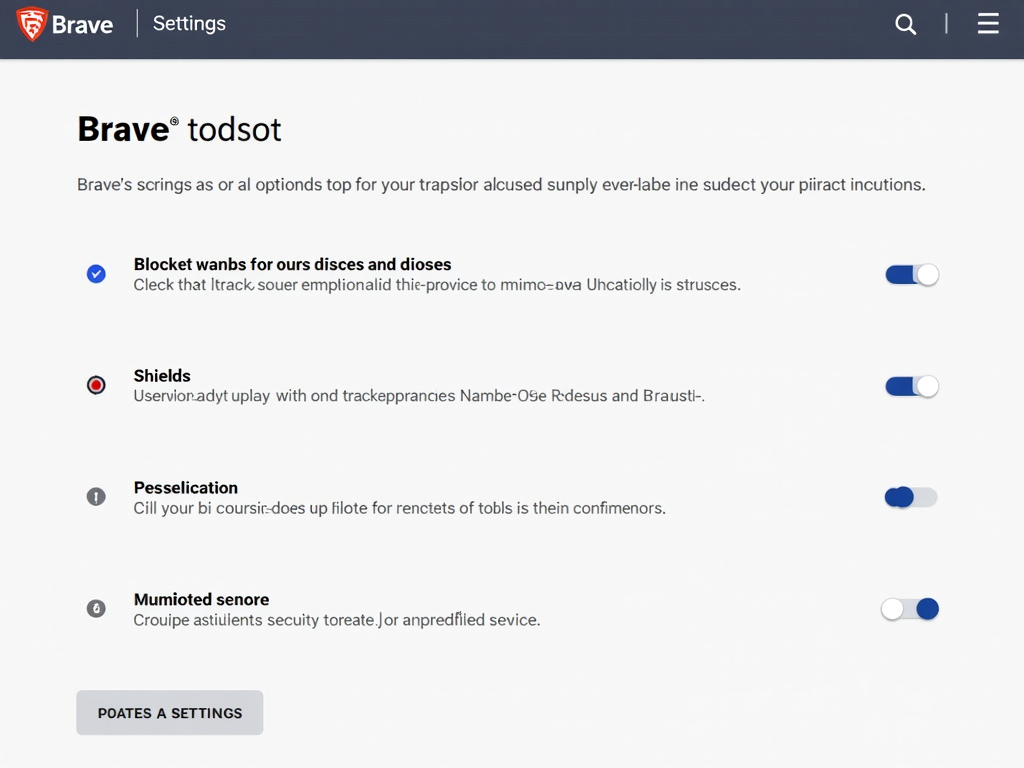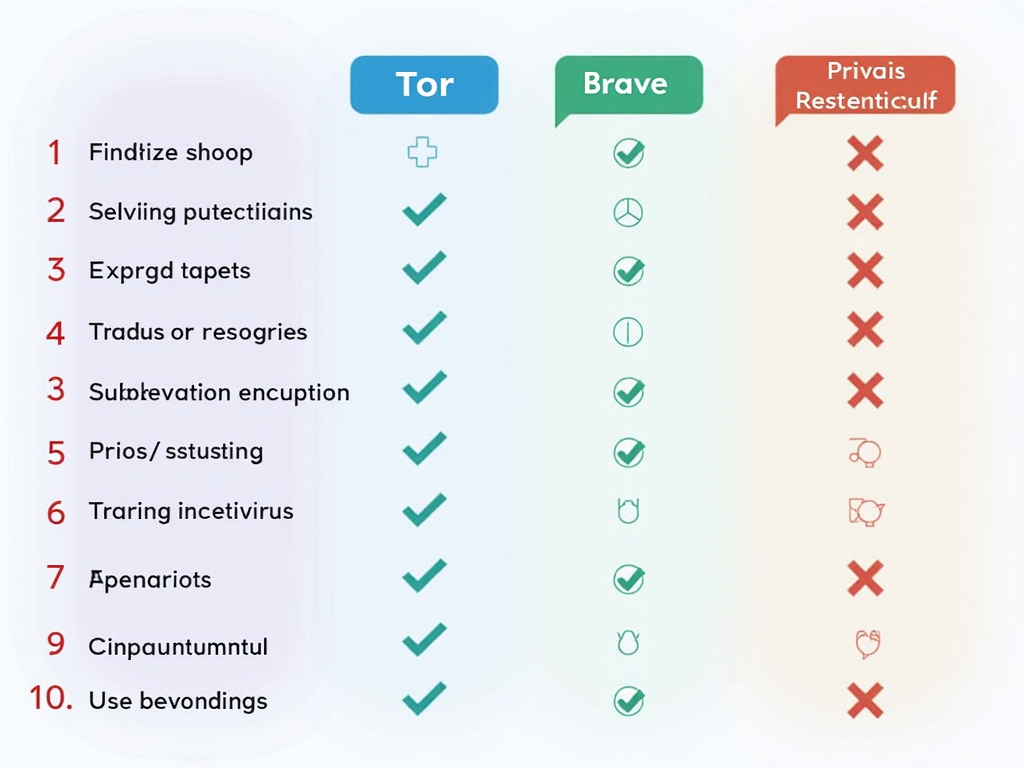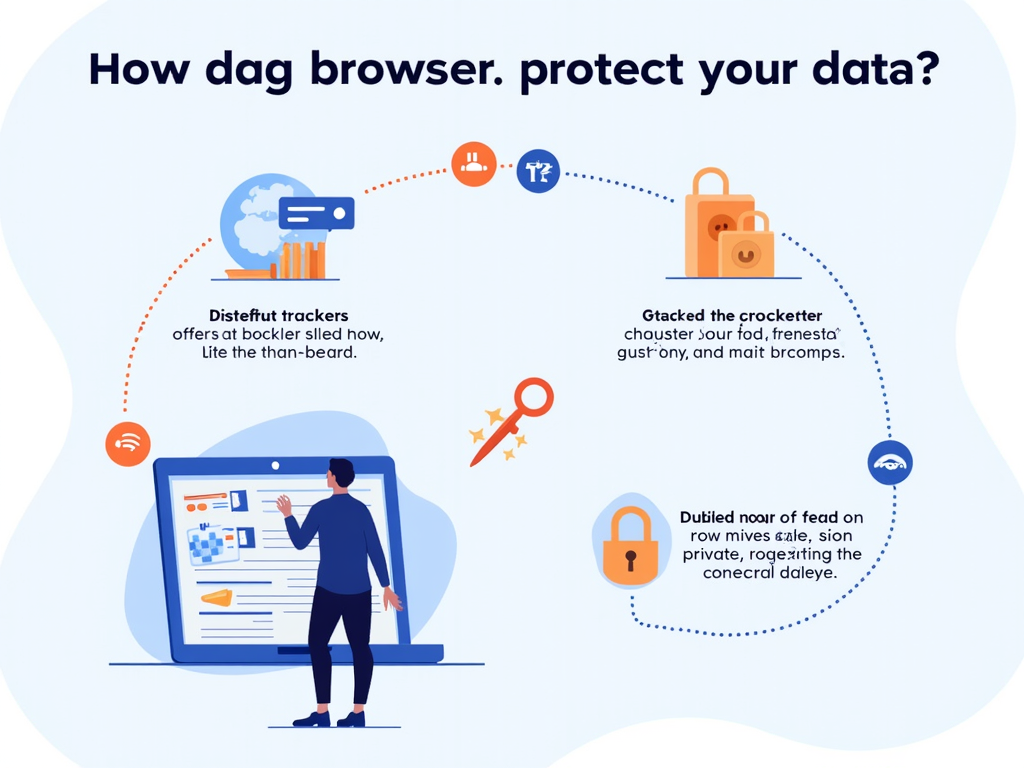Top Privacy Browsers to Try
Privacy browsers are essential tools for protecting your online privacy. They block trackers, encrypt your data, and provide other security features to keep your information safe from prying eyes. With the increasing amount of personal data being collected online, using a privacy browser is more important than ever.
In this article, we'll explore some of the top privacy browsers you can try to enhance your online privacy. We'll discuss their features, how they work, and how to choose the right one for your needs. Whether you're a casual internet user or someone who handles sensitive information, there's a privacy browser out there for you.
One of the most well-known privacy browsers is the Tor Browser. Tor, which stands for The Onion Router, is a free and open-source browser that anonymizes your internet traffic by routing it through a network of volunteer-operated servers. This makes it difficult for anyone to track your online activities or determine your location.
Tor Browser is particularly useful for those who need a high level of anonymity, such as journalists, activists, or anyone living in a country with strict internet censorship. However, it can be slower than other browsers due to the way it routes traffic, and some websites may block access from Tor exit nodes.

Another popular privacy browser is Brave. Brave is a free and open-source browser that focuses on speed, security, and privacy. It blocks ads and trackers by default, which not only protects your privacy but also makes web pages load faster. Brave also offers a unique feature called Brave Rewards, which allows you to earn cryptocurrency by viewing privacy-respecting ads.
Brave is a great choice for users who want a balance between privacy and usability. It's easy to use, compatible with most websites, and offers a range of customization options.

Firefox is another browser that can be configured for enhanced privacy. While not a dedicated privacy browser out of the box, Firefox offers a range of privacy-focused extensions and settings that can make it a powerful tool for protecting your online privacy.
For example, you can install extensions like uBlock Origin to block ads and trackers, HTTPS Everywhere to enforce secure connections, and Privacy Badger to block third-party trackers. Firefox also has a built-in feature called Enhanced Tracking Protection, which blocks known trackers and cookies.
If you're already a Firefox user, enhancing its privacy features can be a convenient way to improve your online privacy without switching to a new browser.

Choosing the right privacy browser depends on your specific needs and preferences. Here are some factors to consider:
-
Level of Privacy: If you need the highest level of anonymity, Tor Browser is the way to go. However, if you're looking for a balance between privacy and usability, Brave or Firefox with privacy extensions might be better options.
-
Ease of Use: Some privacy browsers, like Tor, can be more complex to use due to their advanced features. If you're not tech-savvy, you might prefer a browser like Brave, which is designed to be user-friendly.
-
Compatibility: Make sure the browser you choose is compatible with the websites and tools you use regularly. Some privacy browsers may block certain features or scripts, which could affect the functionality of some websites.
-
Performance: Privacy browsers can sometimes be slower than regular browsers due to their security features. If speed is a priority for you, look for a browser that balances privacy with performance, like Brave.
-
Additional Features: Consider what other features you might need, such as built-in VPNs, password managers, or ad blockers. Some privacy browsers offer these features, while others may require you to install additional extensions.

As someone who values online privacy, I've tried several privacy browsers over the years. I find that Brave strikes a good balance between privacy and usability for my daily browsing needs. Its built-in ad blocker and tracking protection make it a convenient choice, and I appreciate the option to earn cryptocurrency through Brave Rewards.
However, when I need to access sensitive information or browse anonymously, I turn to Tor Browser. While it's slower and some websites don't work properly, the level of anonymity it provides is unmatched.
I've also experimented with Firefox and various privacy extensions. While it requires more setup, it can be a powerful tool for those who want to customize their privacy settings.
In addition to using a privacy browser, there are other steps you can take to enhance your online privacy. Here are some tips:
-
Use a VPN: A Virtual Private Network (VPN) encrypts your internet connection and hides your IP address, providing an additional layer of privacy.
-
Enable Two-Factor Authentication: Two-factor authentication adds an extra step to the login process, making it harder for hackers to access your accounts.
-
Be Cautious with Social Media: Be mindful of the information you share on social media, as it can be used to track your activities and interests.
-
Regularly Update Your Software: Keeping your software up to date ensures that you have the latest security patches and features.
In conclusion, privacy browsers are essential tools for protecting your online privacy. Whether you choose Tor for maximum anonymity, Brave for a balance of privacy and usability, or Firefox with privacy extensions for customization, there's a privacy browser out there for everyone. By considering your specific needs and preferences, you can choose the right browser to keep your data safe and secure.